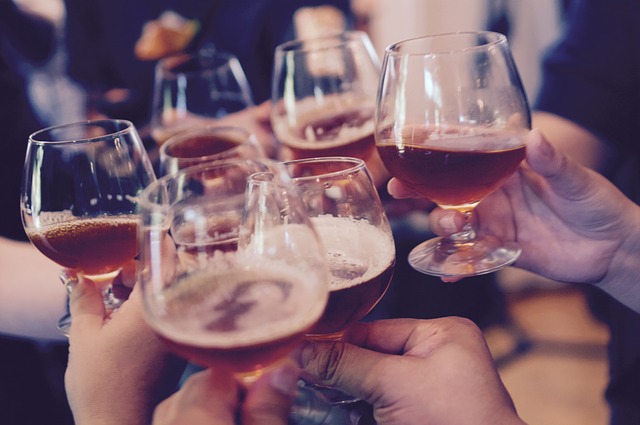How to Avoid a Hangover if You Can’t Wait for ‘Hangover Free’ Alcohol Alternative
‘What’s this ‘hangover free’ stuff and where can I get some?’ Is a question you might be asking right about now, and it’s a very good question. Yes, there is something called ‘alcosynth’ currently in development. Which aims to replicate the positive effects of alcohol without all the nasty morning after feelings and subsequent health issues. But the bad news is you might be in for a bit of a wait – although the scientists currently working on it remain positive about its benefits, they don’t think it will be ready for public consumption until 2050. Oh well.
So what exactly is it all about, and how can we avoid those hangovers in the meantime? Here’s a brief guide to help you navigate the promises and perils…

Wild Claims or Health Revolution?
It does sound a bit too good to be true, but there is hope, according to creator and former government drugs advisor Professor David Nutt. He has currently patented around 90 ‘alcosynth’ compounds with 2 of them being developed and tested for widespread use. The aim is that they will mimic the positive effects of drinking alcohol but without the subsequent nausea, dry mouth and headaches, and it is hoped this ‘alcosynth’ will eventually be used in cocktails such as Mojitos.
One of the more important side-effects of ‘alcosynth’ could well be its effect on our health. With alcohol consumption currently the third biggest factor affecting health and disease in the UK, this could have a huge impact on the nation’s well-being as well as the pressure on health services. But the development of ‘alcosynth’ could hit a few stumbling blocks along the way – there’s the amount of funding required before it is ready for public consumption. Also, as well as the fact that it could well be restricted by the new Psychoactive Substances Act that came into effect in May. So how can we avoid those hangovers in the mean time?
Everything in Moderation
Perhaps the most obvious answer is to drink less, or not at all, but for many it’s not really that simple. If you enjoy your favourite alcoholic drink because you actually like the taste rather than because of its alcoholic content, it might be worth considering viewing your alcohol consumption in a similar way to a healthier diet. There’s nothing wrong with treating yourself, but when you do make sure it’s worth it – spend less money and time on inferior products and more on better quality wines, beers and spirits, just less often.
If you’re interested in trying better quality wines, Waitrose Cellar are a good place to start with a fine selection and savings that include £10 off when you spend £150 or more. Majestic Wine also offer good introductory deals as well as a range from smaller producers. Organic Wine Club are also a great source for people who’d rather stick to wines made with organically grown grapes but struggle to find the required information from supermarkets and other retailers.
Getting Scientific
It must be stressed that when it comes to hangovers, everyone is different, and something that works for one person might not necessarily work for another. However, there is scientific evidence that suggest some types of alcoholic drinks might be more likely to give you a hangover than others, and this is down to the way to alcohol is made. Ethanol is the main active ingredient in alcohol, but when it is produced, side products called congeners are also created. These are toxic chemicals that can contribute to a hangover, and the amount that is present in your drink very much depends on what it is you are drinking. For example, clear spirits such as vodka, gin and rum are lower in congeners than whisky and brandy - something to think about if you want to avoid a headache the next day.
Common Sense
There are few things you can do that might minimise the effects of a hangover and most of them are just good life advice. In general – drink more water (in this instance, in between your alcoholic beverages and before you go to bed), get enough sleep, and eating a healthy nutritious breakfast to replenish any vitamins you might have lost. This is great after your night out on the tiles, and to keep your blood sugar at the required level. Of course, you should probably be doing all of these things whether you’ve consumed alcohol or not.
Hangovers are never fun, and for this reason alone, the promise of a ‘hangover free’ alcohol alternative is most welcome. But if you’re sensible about your drinking habits right now, you might find yourself not suffering so much quite so often.
 By Anna Scott, 26th September 2016
By Anna Scott, 26th September 2016





